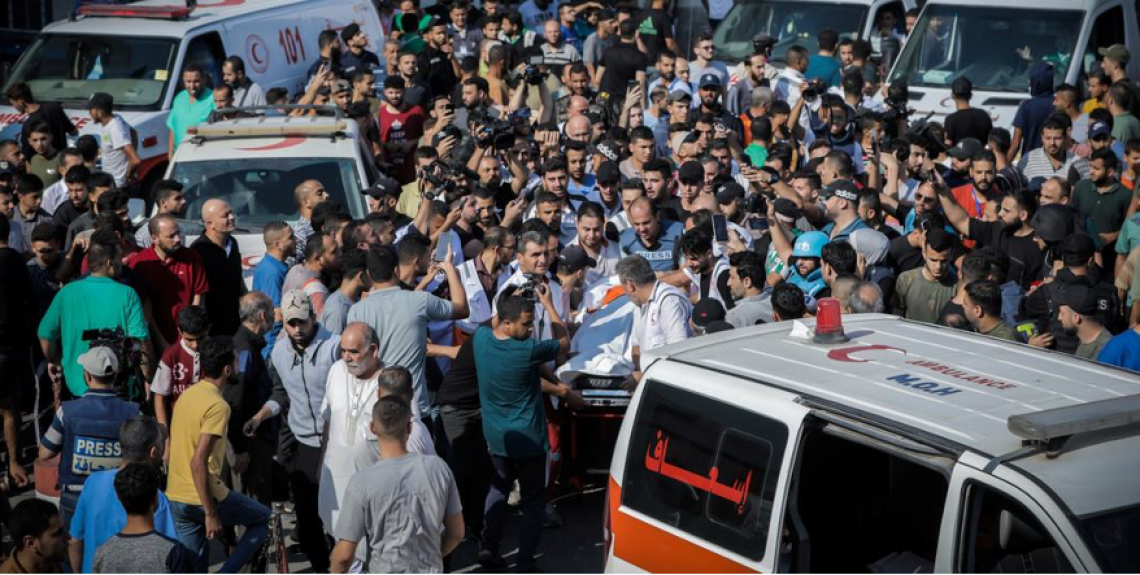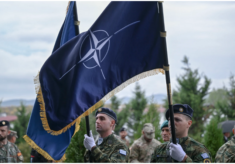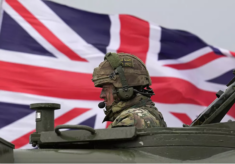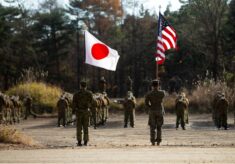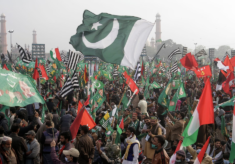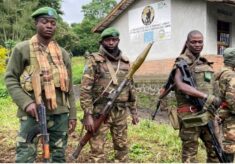Following the brutal offensive (al-Aqsa Flood Operation – Amaliyyat Tufan al-ʾAqṣa) on the 7th of October 2023, what is the are the positions within the Maghreb? We like it or not, the tragic war in the Gaza Strip is creating a dynamic of consensus within each of the five Maghreb countries.
The roots are often much older than media and current politics’ attention span. For instance, regarding Algeria-Palestine relations, PLO has an office in Algiers since 1965, while Hamas officially in 2016 (since 2007 de facto is estimated). Interestingly, both offices were never object of special operations.
Algiers remembers the pictures from 1974 at the UN General Assembly in New York City, when the Palestine Liberation Organization (PLO) chairman Yasser Arafat was invited to the 29th session of the United Nations General Assembly. In 1974, Algeria was elected as a non-permanent member to serve at UNSC (UN Security Council).
Then, confirming its stance in June 1988, Algeria held an Arab leaders’ summit named “al-Intifada Summit”, chaired by President Chadli Bendjedid. The only point in the agenda was the support of the Palestinian Intifada (Uprising) in the occupied Palestinian territories. In November 1988, the Palestinian National Council met in Algiers, and announced the declaration of independence ushering the Palestinian state.
In 2022, President Abdelmadjid Tebboune invited Mahmoud Abbas (current president of the Palestinian Authority) president and Ismail Haniyeh, Hamas’ political bureau chief, to attend Algeria’s independence celebrations (5th of July 1962), hoping this would give an opportunity to end the split between the two factions. Despite a military parade underlining the parallel between the Algerian war of liberation and the Palestinian struggle, the divisions persist until today.
After half a century, in January 2024, Algeria began its fourth two-year term on the UNSC. It will hold one of the three African seats and will be the sole representative of the Arab region. Algeria has been actively advocating the Palestinian cause in the Council, raising concerns about the illegal occupation of Palestinian lands before the ICJ (International Court of Justice). In November 2023, Algeria urged the ICC (International Criminal Court) to hold Israel accountable for its actions in Gaza. Apparently, elites and population draw a highly symbolic parallel between the Algerian war of liberation (1st of November 1954) against French colonisation and the ongoing Al-Aqsa Flood Operation.
Quest of normalization
During a much-publicized trip in July 1986, Shimon Peres, the then Israeli Prime Minister, visited Morocco with the intention of playing a key role in Arab-Israeli normalization. Late Moroccan King Hassan II met with Peres during his visit, which caused consternation in Arab states, particularly with Syria. After the stillborn Oslo Accords in 1993, King Hassan II appointed Serge Berdugo (President of the Council of Jewish Communities of Morocco) as the Minister of Tourism. In 1999, Mohammed VI ascended to the throne.
There have been unofficial ties between the royal Palace and the security intelligence services of Morocco and Israel since 1961 (officialised in 2021), despite criticism from Moroccan left, progressive opposition forces, and Islamist parties. However, this critic has intensified in light of the ongoing brutal war in Gaza with thousands of demonstrators gathering to protest in favour of the Palestinians’ plight. These protests are the largest anti-Israeli protests since the 2020 normalization of relation and risk to create a wider rejection against any normalisation.
Pressure for re-normalization
Mauritania first established diplomatic relations with Israel in 1999. However, in 2009 relations were definitely broken after another deadly offensive against Gaza. The Mauritanian government has been under pressure since 2020 from the UAE to normalization to get economic aid and favourable development conditions, in vain. Under Mauritania’s President Mohammed Ould el-Ghazouani as new chairman of the AU (African Union) in 2024, the decision to suspend Israel’s observer status was formalised.
Normalization as red line
Tunisia, Algeria and Mauritania reject any normalization process, and consider Hamas a liberation movement. Tunisia in particular felt particularly pressured after the Sabra and Chatila massacre in Lebanon 1982, when PLO had to migrate to Tunis, where at least two targeted assassinations were carried out by the Mossad (1988 and 2016). This position has been hardened under President Kaïs Saïed, stating that normalisation is out of question and out of any political parlance.
Failed normalization start
Historically, the long leading dictator Muammar Al-Qaddafi in 2003 made a bold proposal in his “White Book” regarding the Arab-Israeli conflict, advocating for the creation of Isratin as a potential solution to the complex Arab-Palestinian issue Libya-Israel relations; local public opinions had their doubts. Then, particularly during his last years, he believed that Israel, with other imperialist powers, was involved in all of Africa’s conflicts, as he asserted during an extraordinary summit session of the AU in 2009 (https://www.africanews.com/2017/09/19/speech-muammar-gaddafi-at-the-64th-un-general-assembly-in-2009//).
Libya is a fragmented country where its leaders have been in power struggle since 2012. In August 2023, Libya’s Premier of GNU (Government of National Unity) in Tripoli sacked Foreign Affairs Minister Najla al-Mangoush as a result of UN-official meeting in Rome with Israel’s Foreign Affairs Minister, Eli Cohen.
In the end the Gaza war is felt as a deep geopolitical rift in the region by: postponing or even cancelling all Arab states peace initiatives; changing once again the balance of power in the Middle East; dislocating international consensus; letting emerge even more non-state actors such as Hamas, Hezbollah, Ansar Allah, the Islamic resistance coalition and other Palestinian entities; creating new conditions for future, at present improbable, peace talks. Baffled regional public opinions, deeply disappointed by the passivity of most Muslim country leaders towards Israel, voice vigorously their support for the Palestinians. Time will tell if and which will be the far-reaching consequences.
Abdennour Toumi
Maghreb Studies Expert at Center for Middle East Studies / ORSAM - Ankara, Turkey.

